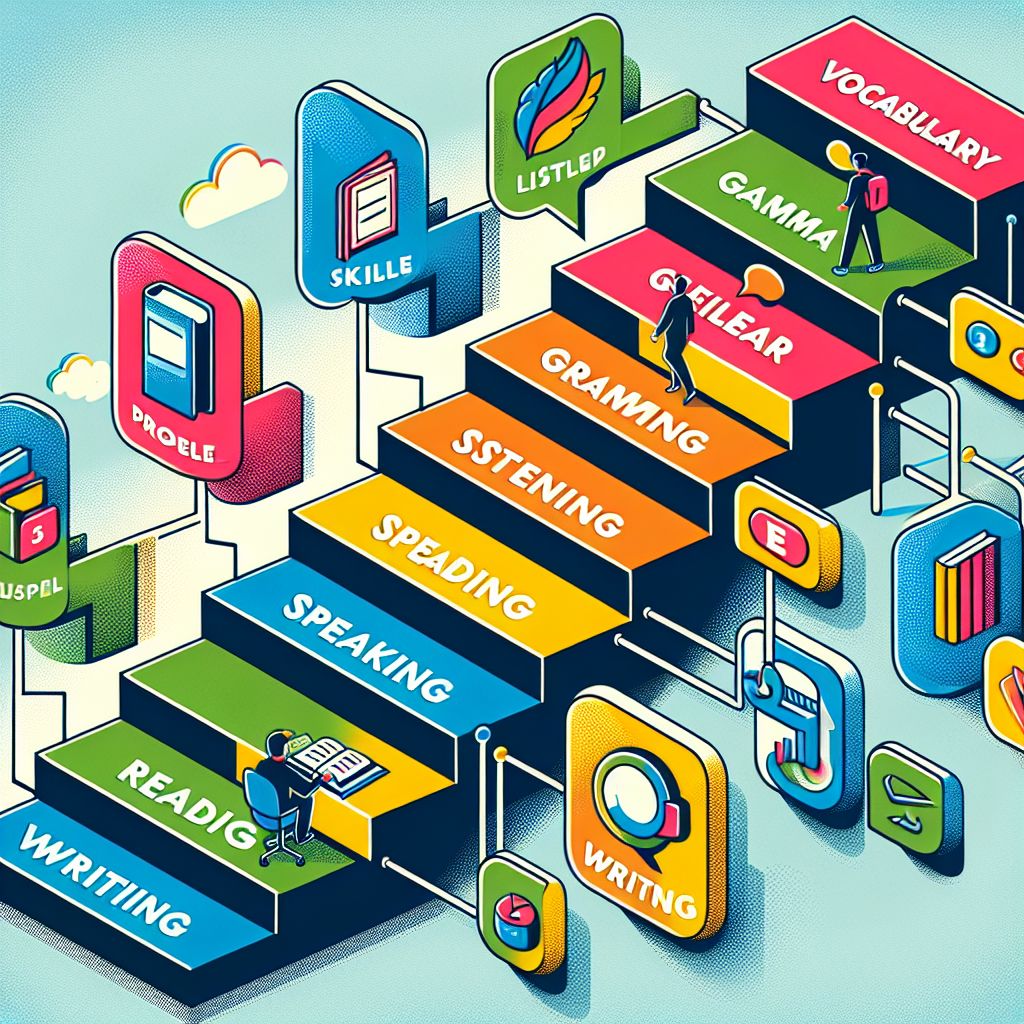Are you looking to enhance your English language skills? Building a robust vocabulary is a crucial step in mastering any language, and English is no exception. Whether you’re a beginner or an advanced learner, expanding your word bank can significantly improve your communication abilities. In this comprehensive guide, we’ll explore various strategies and techniques to help you build your English vocabulary effectively.
Understanding the Importance of Vocabulary
Before diving into specific strategies, it’s essential to recognize why vocabulary is so crucial in language learning. A rich vocabulary allows you to:
- Express yourself more precisely
- Understand native speakers better
- Read complex texts with ease
- Write more eloquently
- Perform better in academic and professional settings
 Importance of vocabulary
Importance of vocabulary
Effective Strategies to Build Your English Vocabulary
1. Read Extensively
One of the most effective ways to build your vocabulary is through extensive reading. This method exposes you to words in context, helping you understand their usage and nuances.
- Choose materials that interest you: novels, newspapers, magazines, or online articles
- Start with texts at your current level and gradually increase difficulty
- Use context clues to guess the meaning of unfamiliar words
- Keep a reading journal to note new words and their contexts
2. Use Vocabulary Apps and Online Tools
In the digital age, numerous apps and online tools can aid in vocabulary building:
- Duolingo: Offers gamified vocabulary lessons
- Anki: A spaced repetition flashcard system
- Quizlet: Create and study digital flashcards
- Vocabulary.com: Provides adaptive vocabulary learning
These tools often use spaced repetition and gamification to make learning more engaging and effective.
3. Learn Word Families
Instead of learning words in isolation, focus on word families. This approach helps you understand how words are related and can expand your vocabulary more efficiently.
For example, the word “create” belongs to a family that includes:
- Creation (noun)
- Creative (adjective)
- Creatively (adverb)
- Creator (noun)
Learning these related words together can significantly boost your vocabulary growth.
4. Use the Etymology Method
Understanding the origins and history of words can make them more memorable and help you recognize patterns in language.
- Learn common Greek and Latin roots, prefixes, and suffixes
- Use an etymology dictionary to explore word origins
- Look for connections between words with similar roots
For instance, knowing that “bio” means “life” can help you understand words like biology, biography, and biodiversity.
5. Incorporate New Words into Your Daily Life
Active use of new vocabulary is crucial for retention. Try these techniques:
- Use a new word in conversation or writing at least three times on the day you learn it
- Create sentences or short stories using new words
- Explain the meaning of new words to someone else
- Set a goal to use a certain number of new words each week
6. Create a Personal Dictionary
Maintain a personalized dictionary or vocabulary journal:
- Write down new words you encounter
- Include the definition, part of speech, and an example sentence
- Add synonyms, antonyms, and related words
- Review your personal dictionary regularly
 Personal vocabulary journal
Personal vocabulary journal
7. Watch English Media with Subtitles
Engaging with English-language media can significantly boost your vocabulary:
- Watch English movies and TV shows with English subtitles
- Listen to podcasts and audiobooks
- Follow English YouTube channels on topics that interest you
- Use closed captions to see the spelling of words you hear
This method helps you learn vocabulary in context and improves your listening skills simultaneously.
8. Play Word Games
Make vocabulary building fun by incorporating word games into your routine:
- Crossword puzzles
- Scrabble or Words with Friends
- Boggle
- Online word games and apps
These games challenge you to recall and use words, reinforcing your learning.
9. Use Mnemonic Devices
Mnemonic devices are memory techniques that can help you remember new words:
- Create acronyms or acrostics
- Use rhymes or songs
- Make visual associations
- Create a story or scenario involving the word
For example, to remember that “loquacious” means talkative, you might picture a chatty person with a “low key shush” sign.
10. Practice Word Formation
Understanding how words are formed can exponentially increase your vocabulary:
- Learn common prefixes and suffixes (e.g., un-, -able, -tion)
- Practice creating new words by adding affixes to base words
- Identify root words in complex vocabulary
For instance, understanding that “un-” means “not” and “-able” means “capable of being” can help you decipher words like “unbelievable” or “unthinkable.”
Important Considerations
While building your vocabulary, keep these points in mind:
- Quality over quantity: Focus on learning words that are useful and relevant to your needs
- Context is key: Always learn words in context to understand their proper usage
- Consistency matters: Regular, daily practice is more effective than sporadic, intensive study sessions
- Be patient: Vocabulary building is a gradual process that requires time and persistence
Next Steps
Now that you have a arsenal of strategies to build your English vocabulary, it’s time to put them into practice:
- Set specific, measurable goals (e.g., learn 10 new words per week)
- Create a study schedule that incorporates various techniques
- Track your progress using a vocabulary app or journal
- Challenge yourself with increasingly complex materials
- Find a language exchange partner to practice using new words in conversation
Remember, building your English vocabulary is a journey, not a destination. Embrace the process, stay curious, and enjoy the rich world of words that awaits you. With consistent effort and the right strategies, you’ll see significant improvement in your English language skills over time.




